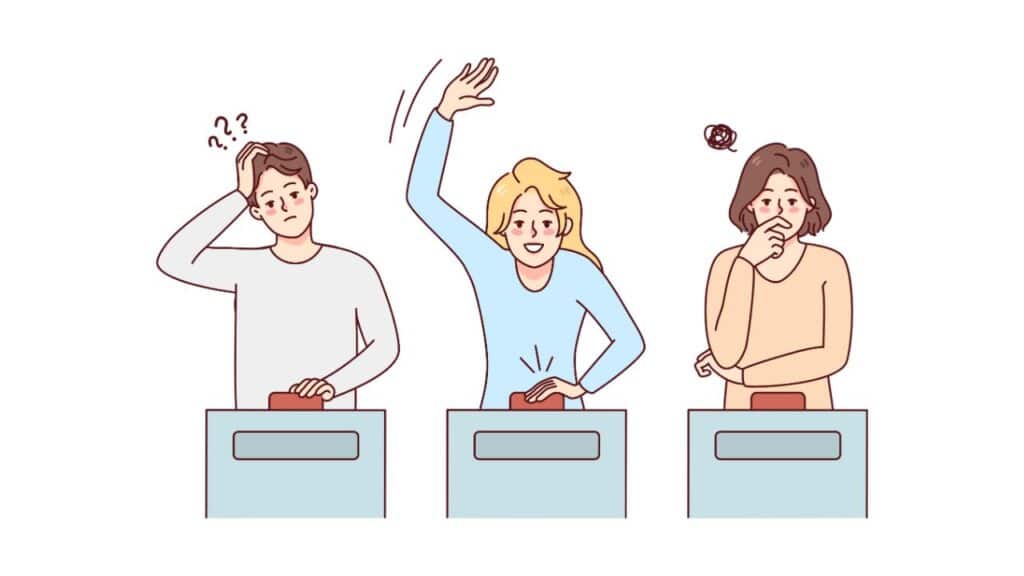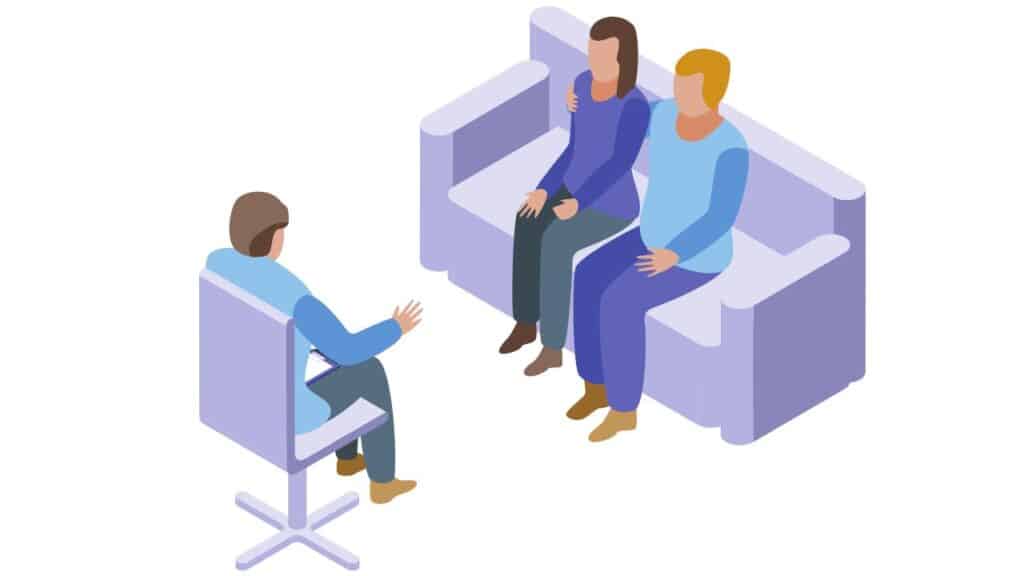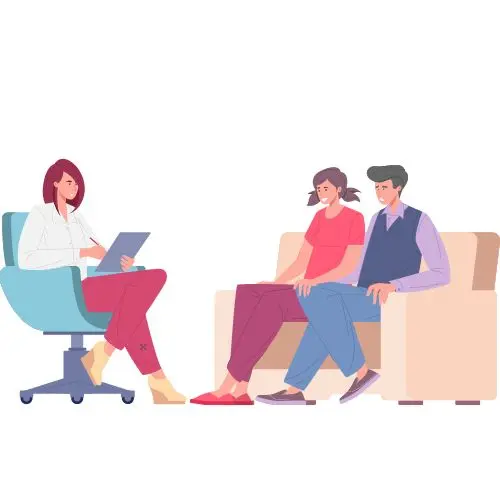Introduction
For several people, couples counseling has remained a significant means to mend, keep, or reinforce their connections. However, as effective as this therapy can be, it is equally important to recognize that such treatment is not invariably the right course of action for every problem that besets couples. The pertinent question then, of course, arises: “When is Couples Therapy Not Appropriate?” This would have made couples avoid wasting time and resources together with emotional distress while exploring other options that could work better for them. It examines various situations where couples counseling should not even be an option.
| Statistics/Facts | Information Source |
|---|---|
| Approximately 70% of couples show improvement after participating in couples therapy. | American Association of Marriage and Family Therapy |
| Over 40% of first marriages in the US end in divorce | American Psychological Association |
| An average couple waits six years before seeking help for relationship problems. | Gottman Institute |
| Studies indicate that domestic violence occurs in approximately 25% of relationships. | American Journal of Public Health |
Understanding Couples Therapy
The service of couples’ therapy is a tool for couples to get an analytical understanding of their relationship, resolve disputes, and improve peace of mind. This applies to every stage in the course of couplehood without regard to whether they are married or not and also if or not they are gay. During these sessions, an experienced therapist will take control of the situation by offering a judgment-free, safe environment that enables openness amongst partners.
When Couples Therapy May Not Be Appropriate
While couples therapy has a host of benefits, there are specific circumstances when it may not be suitable:
1. Existence of Domestic Abuse
Couples therapy is generally contraindicated in cases where physical, emotional, or sexual abuse is an issue in a relationship. This can inadvertently give an abusing partner a forum to manipulate the therapy sessions themselves, while the victim may feel unsafe or coerced into participating.
2. Active Addiction
Addiction can also be a significant deterrent to effective couples therapy. So long as the partner is actively addicted, therapy is often nonproductive since the addiction has likely destroyed the trust and created dysfunctional communication.
3. Unwillingness to Participate

Couples’ therapy can only succeed if both partners are willing to participate in the process; if one partner is not, or is coerced into it and not invested in the therapy, the chances of success are drastically reduced.
4. Mental Health Issues
Severe mental health issues that are untreated or not properly managed may impede the effectiveness of couples therapy. Such conditions may prevent an individual from fully participating or benefiting from therapy.
The Importance of Timing in Couples Therapy
Research has shown that people who couple up usually love to be together for six years in unhappy relationships before help-seeking. Sometimes, however, everything changes when you go for therapy. Couples therapy may not be effective if there are many unspoken words or the relationship has encountered so many challenges. Too often, these same situations create what relationship researcher Dr John Gottman calls the Four Horsemen- criticism, contempt, defensiveness, and stonewalling, which are difficult to turn around again.
Alternatives to Couples Therapy

If couples therapy is not an appropriate or viable option, there are other avenues for assistance:
- Individual Therapy: If one partner is dealing with issues that hinder couples therapy, such as mental health disorders or addiction, individual therapy could be beneficial.
- Group Support: A family of an alcoholic may find support and resources from groups such as Al-Anon or local domestic violence support groups.
- Online Resources: Websites, blogs, and forums can offer advice, strategies, and community support for dealing with relationship difficulties.
- Self-Help Books: Publications by credible experts can offer insights and strategies for handling relationship problems.
- Retreats and Workshops:
- Immersive experiences focused on relationship enhancement.
- Feature expert facilitators and therapeutic exercises.
- Provide opportunities for couples to reconnect and deepen their bond.
- Relationship Education Programs:
- Structured courses to enhance relationship skills.
- Offer tools for conflict resolution and communication.
- Available in-person or online for flexible learning.
- Mediation or Conflict Resolution Services:
- Involves a neutral third party facilitating communication.
- It helps couples find mutually beneficial solutions.
- Rebuilds trust and resolve ongoing conflicts.
- Couples Coaching:
- A goal-oriented approach to relationship improvement.
- Works with a coach for guidance and specific strategies.
- Supports couples in overcoming challenges and achieving goals.
- Spiritual or Religious Counseling:
- Incorporates faith and spirituality into the therapeutic process.
- Provides a unique perspective and support system.
- Guided by a spiritual or religious leader.
- Retreats for Relationship Healing:
- Specialized retreats for addressing traumas or challenges.
- It focuses on healing, forgiveness, and rebuilding trust.
- Offers a structured environment for deep emotional work.
Conclusion
Whereas couples therapy is remarkably effective for most couples, it is equally important to realize when it is not advisable. A deep understanding of limitations and constraints regarding this psychotherapeutic modality could help couples seek the best resolution path. If you find yourself in a situation where couples therapy may not be appropriate, explore other avenues of support and guidance. There’s always help available, come what may.
FAQ’s
What are the disadvantages of couples counseling?
Counseling for couples may be beneficial, but it does not benefit all couples as well. Sometimes, it is difficult to talk about painful matters and it can drain time and finances. Sometimes, this would even imply the relationship can’t be solved back again.
Why don’t people go to couples therapy?
Many factors contribute to people’s avoidance of couples therapy. First, there is the possibility that some may not like what other people think. Secondly, they might feel judged all the time. They may not want to admit there are problems. Fourth, they may be apprehensive about the cost. Lastly, they may be uncertain whether it will help. The other reasons why people avoid therapy include to avoid causing more problems and talking about personal issues.
What circumstances lead a therapist to consider couple therapy when it is contraindicated?
Therapists advise couples therapy if both partners are willing to participate. It is especially true in instances where relationship problems are the cause of distress or unhappiness. Gruner states that in some instances, therapy might not be advised. These include domestic violence, where a partner has a serious mental illness or when one partner is not willing to participate or make changes.
What not to say in couples counseling?
Avoid blaming your partner for all issues; therapy is where feelings can be shared without retribution. The character assassinations should also be refrained from. Avoid absolute language such as “you always” or “you never” since it escalates conflicts.

